
Thulusdhoo Island: A Tropical Paradise in the Maldives
Thulusdhoo Island, nestled in the sparkling waters of the Maldives, is a gem waiting to be discovered. Known for its breathtaking beauty, this island offers a perfect blend of natural splendor and vibrant local culture. As you step onto Thulusdhoo, you are greeted by pristine white sandy beaches that stretch into the crystal-clear turquoise sea. The island is surrounded by coral reefs teeming with marine life, making it a paradise for snorkeling and diving enthusiasts. Thulusdhoo is not just about the beaches; it is also famous for its surf break known as 'Cokes', named after the Coca-Cola factory on the island. Surfing here is an exhilarating experience, with waves that attract surfers from around the world. For those who prefer a more relaxed pace, the island offers plenty of opportunities to unwind, whether it's lounging by the beach, exploring the local markets, or indulging in fresh seafood at one of the island's charming restaurants. The island's culture is rich and welcoming. Visitors can immerse themselves in the local way of life by visiting the traditional Maldivian houses, participating in cultural events, or simply chatting with the friendly locals. Thulusdhoo offers a unique blend of adventure and relaxation, making it a must-visit destination for anyone traveling to the Maldives.
Local tips in Thulusdhoo Island
- Visit between November and April for the best weather and surf conditions.
- Bring reef-safe sunscreen to protect the vibrant marine life.
- Explore the local market for unique souvenirs and fresh produce.
- Respect local customs, especially dress codes, when visiting inhabited areas.
- Try the local seafood dishes at small island restaurants for an authentic culinary experience.
Thulusdhoo Island: A Tropical Paradise in the Maldives
Thulusdhoo Island, nestled in the sparkling waters of the Maldives, is a gem waiting to be discovered. Known for its breathtaking beauty, this island offers a perfect blend of natural splendor and vibrant local culture. As you step onto Thulusdhoo, you are greeted by pristine white sandy beaches that stretch into the crystal-clear turquoise sea. The island is surrounded by coral reefs teeming with marine life, making it a paradise for snorkeling and diving enthusiasts. Thulusdhoo is not just about the beaches; it is also famous for its surf break known as 'Cokes', named after the Coca-Cola factory on the island. Surfing here is an exhilarating experience, with waves that attract surfers from around the world. For those who prefer a more relaxed pace, the island offers plenty of opportunities to unwind, whether it's lounging by the beach, exploring the local markets, or indulging in fresh seafood at one of the island's charming restaurants. The island's culture is rich and welcoming. Visitors can immerse themselves in the local way of life by visiting the traditional Maldivian houses, participating in cultural events, or simply chatting with the friendly locals. Thulusdhoo offers a unique blend of adventure and relaxation, making it a must-visit destination for anyone traveling to the Maldives.
When is the best time to go to Thulusdhoo Island?
Iconic landmarks you can’t miss
Dream Beach
Discover Dream Beach in Thulusdhoo: Sun, sand, and serenity await on this idyllic Maldivian escape.
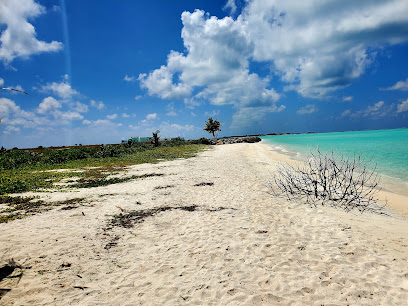
Thulusdhoo SunSet Beach
Experience breathtaking sunsets and tranquil beauty at Thulusdhoo SunSet Beach, a Maldivian paradise offering relaxation and adventure.
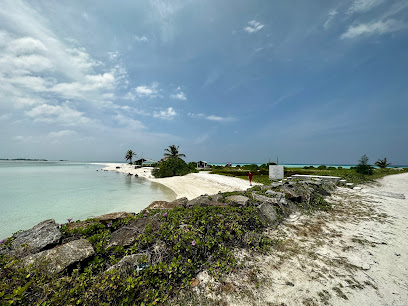
Thulusdhoo 3Ruh Park
A serene public beach on Thulusdhoo, Maldives, perfect for relaxation with shallow waters and a nearby mosque.
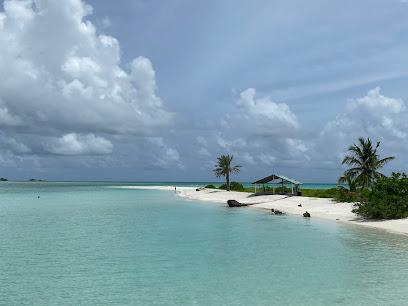
Bikini Beach
Relax on the white sands of Thulusdhoo's Bikini Beach, a designated tourist haven with clear waters and stunning sunrise views.
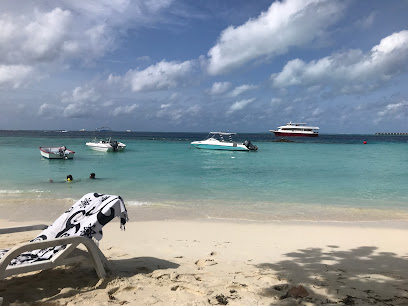
Furaagandu
Discover Furaagandu in Thulusdhoo, Maldives: a tranquil paradise with pristine beaches, stunning sunrises, and vibrant marine life.
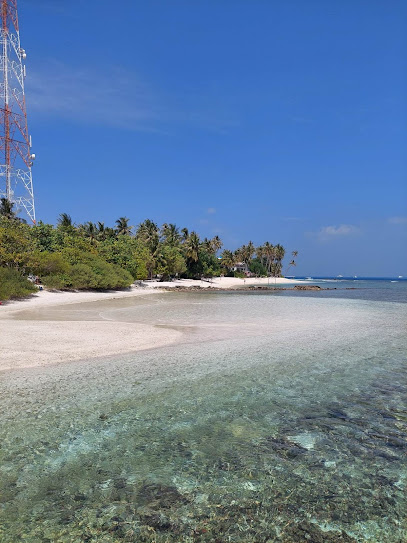
Shark point Thulusdhoo
Discover the underwater wonders of Shark Point in Thulusdhoo, Maldives: vibrant coral reefs and thrilling encounters with diverse marine life await!
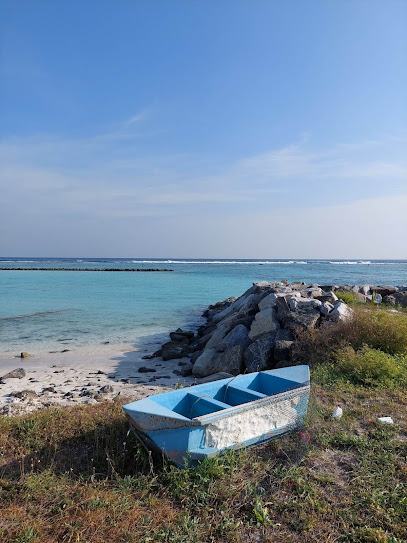
Thulusdhoo Thundi
Discover Thulusdhoo Thundi: Pristine beaches, vibrant marine life, and tranquil island vibes await in the heart of the Maldives.
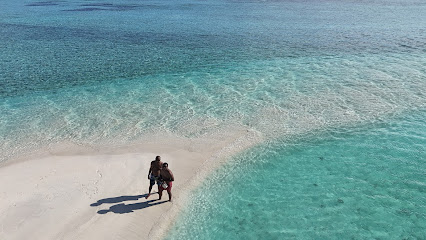
Thulusdhoo Pond (Fengandu)
Discover Thulusdhoo's hidden gem: a serene pond offering a tranquil escape and a refreshing connection with nature.
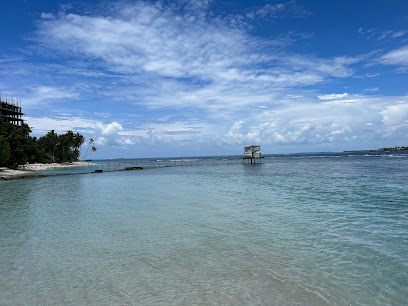
Ocean Swing
Soar above the turquoise waters of Thulusdhoo at Ocean Swing, a thrilling and unforgettable Maldivian adventure with breathtaking panoramic views.
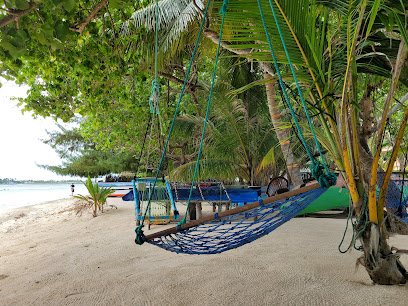
Thulusdhoo Sandbank
Escape to a serene Maldivian paradise: pristine sands, turquoise waters, and vibrant marine life await at Thulusdhoo Sandbank.
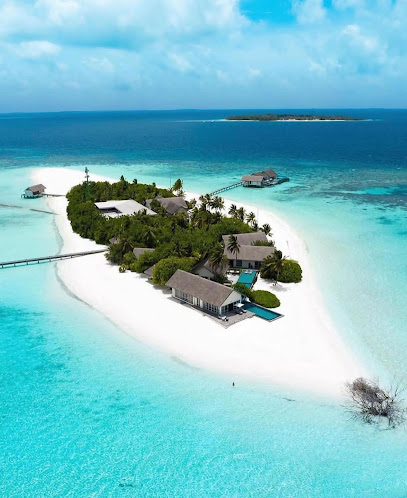
Magukolhu Gaadiya
Explore the underwater wonders of Magukolhu Gaadiya in Thulusdhoo, Maldives: vibrant reefs, diverse marine life, and crystal-clear waters await!
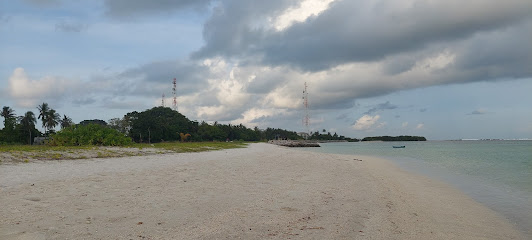
Great Wall of Thulusdhoo
Discover the Great Wall of Thulusdhoo: A cultural gem offering stunning views and a glimpse into the heart of Maldivian heritage.
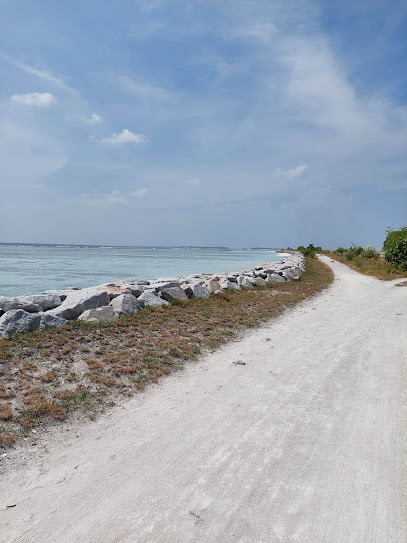
House reef
Explore Thulusdhoo's House Reef: A vibrant underwater world with colorful fish, coral, and marine life awaits snorkelers and divers.

Unmissable attractions to see
Artificial Beach
Experience the tranquility of Malé's Artificial Beach - a stunning man-made seaside escape in the Maldives for relaxation and adventure seekers alike.
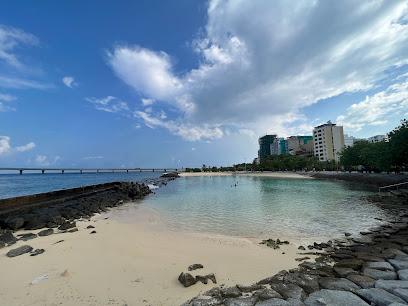
Tsunami Monument
Explore the Tsunami Monument in Malé, a serene tribute to resilience and hope, set in the beautiful Thin Ruh Park.
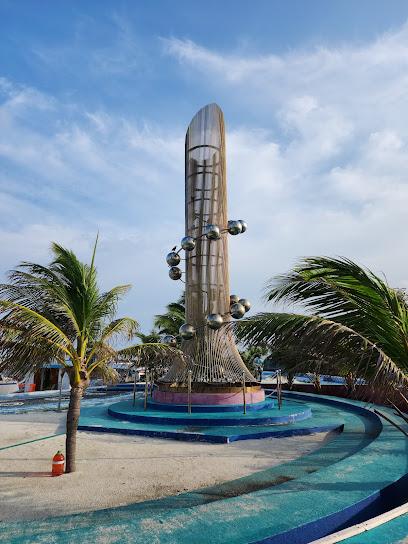
Dream Beach
Discover the enchanting Dream Beach in Thulusdhoo, Maldives—a tropical paradise of white sands, crystal waters, and vibrant marine life.
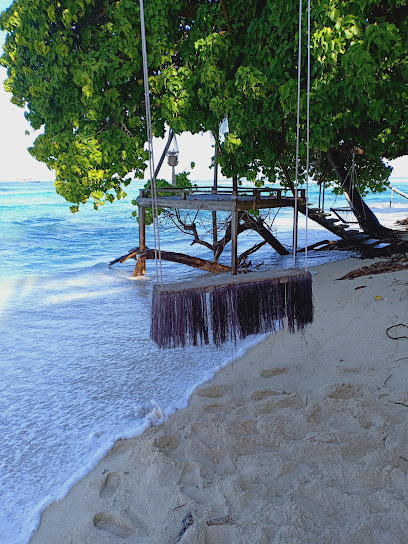
Thulusdhoo SunSet Beach
Discover the breathtaking beauty of Thulusdhoo SunSet Beach, a serene paradise in the Maldives known for its stunning sunsets and vibrant marine life.
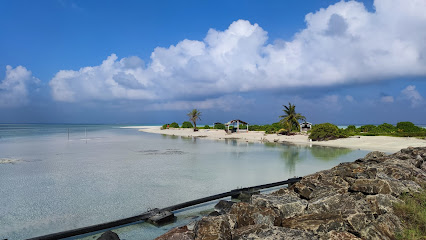
Thulusdhoo 3Ruh Park
Explore the serene beauty of Thulusdhoo 3Ruh Park, a tranquil retreat in the Maldives perfect for relaxation and enjoying nature's splendor.
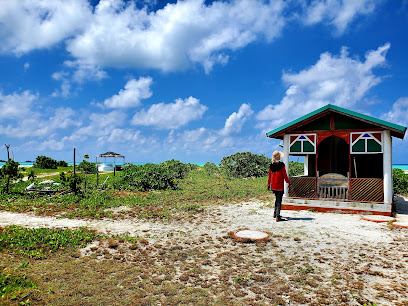
Furaagandu
Discover the breathtaking beauty of Furaagandu, a tranquil paradise in Thulusdhoo, Maldives, perfect for relaxation, adventure, and unforgettable memories.
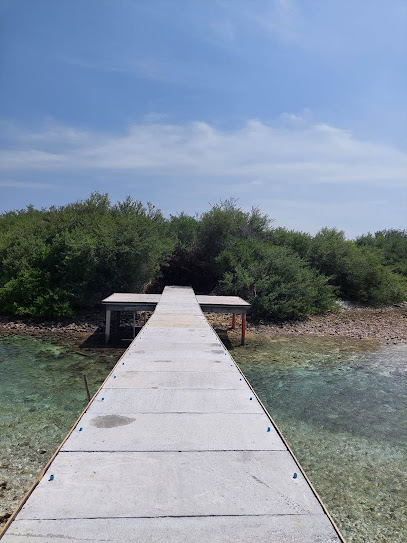
Shark point Thulusdhoo
Discover the underwater wonders of Shark Point Thulusdhoo, where thrilling dives and vibrant marine life await in the heart of the Maldives.
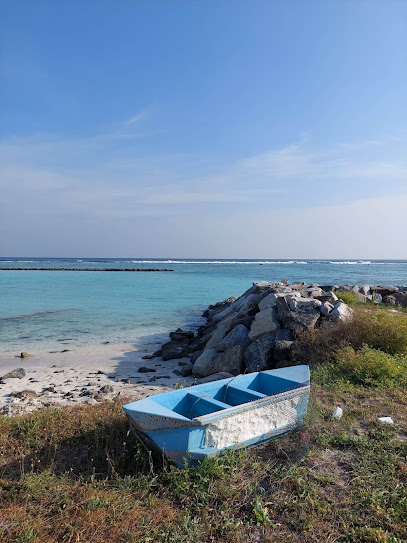
Naafi Jetty
Explore the stunning Naafi Jetty in Thulusdhoo, a vibrant gateway to adventure, breathtaking views, and authentic Maldivian experiences.
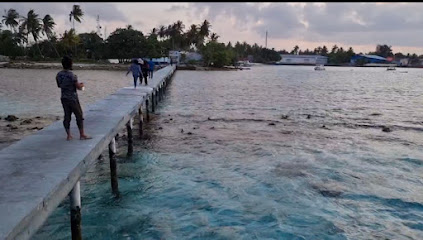
Cokes Surf break
Discover the breathtaking Cokes Surf Break in Thulusdhoo, Maldives—an iconic surf spot with perfect waves and stunning scenery.
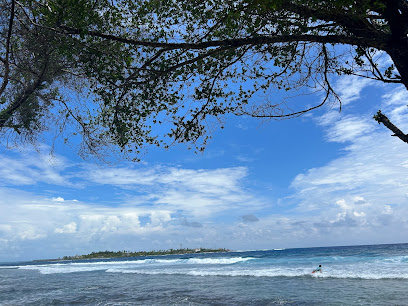
Thulusdhoo Thundi
Discover the tranquil beauty of Thulusdhoo Thundi, a must-visit tourist attraction in the Maldives known for its stunning marine life and serene beaches.
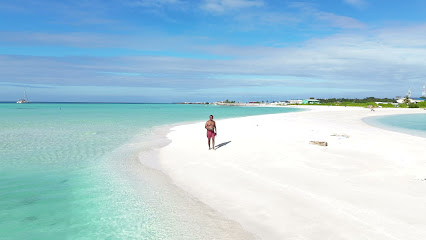
Randhaalan
Discover the charm of Randhaalan in Thulusdhoo, a perfect blend of culture, nature, and unforgettable experiences in the Maldives.
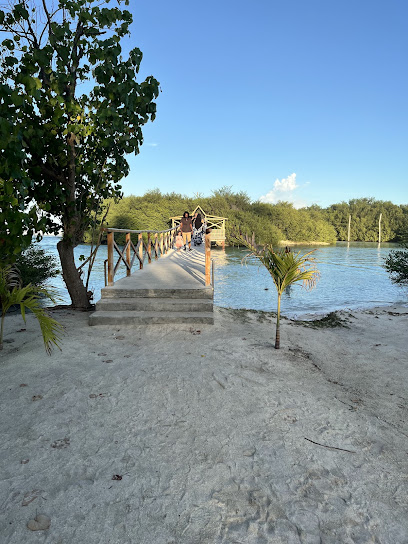
surf point Cokes
Experience the thrill of surfing at Surf Point Cokes, a paradise for surfers and beach lovers in the Maldives, with pristine waves and vibrant marine life.
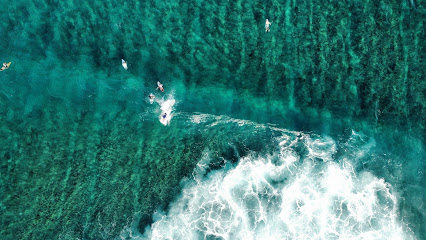
Walkway Jetty..
Discover the breathtaking beauty of the Walkway Jetty in Thulusdhoo, a serene escape with stunning views and vibrant marine life.
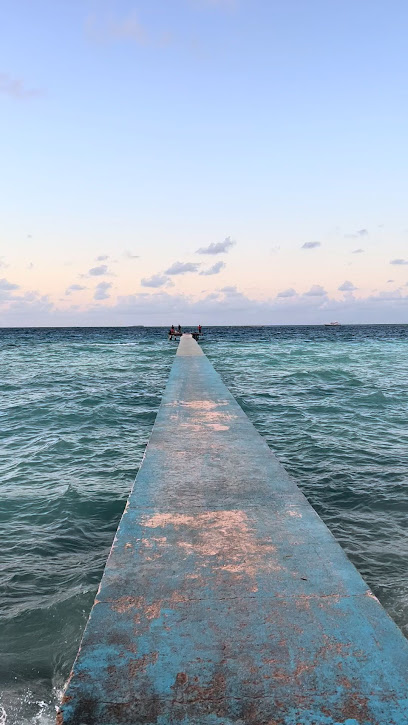
Ocean Swing
Soar above the turquoise waters of the Maldives at Ocean Swing in Thulusdhoo, an exhilarating tourist attraction for adventure lovers and nature enthusiasts.
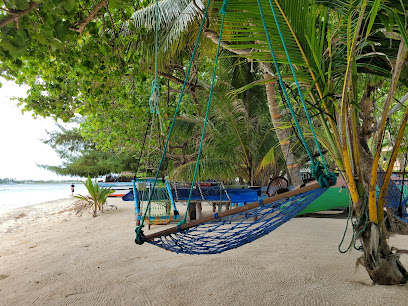
Thulusdhoo Pond (Fengandu)
Experience the tranquil beauty of Thulusdhoo Pond in the Maldives, a serene escape surrounded by lush greenery and vibrant wildlife.
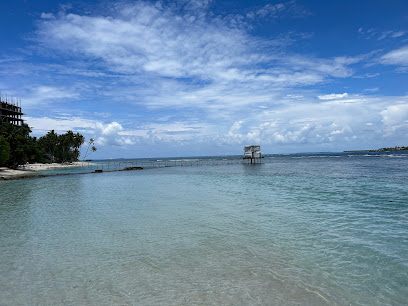
Essential places to dine
Indulge Thulusdhoo
Experience delightful Western cuisine amidst the stunning backdrop of Thulusdhoo Island in the Maldives.
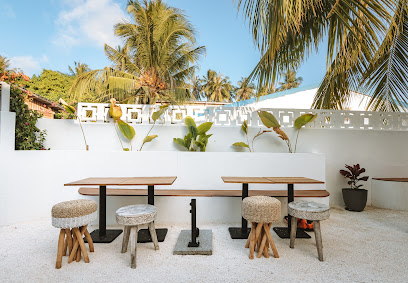
Byyoni
Experience authentic Maldivian cuisine at Byyoni, where fresh ingredients meet local flavors in a welcoming atmosphere.
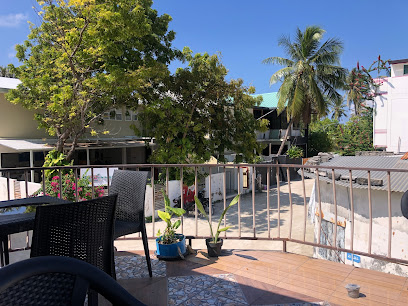
Bandaha Cafe
Discover the taste of Asia at Bandaha Cafe in Thulusdhoo - where every dish tells a story.
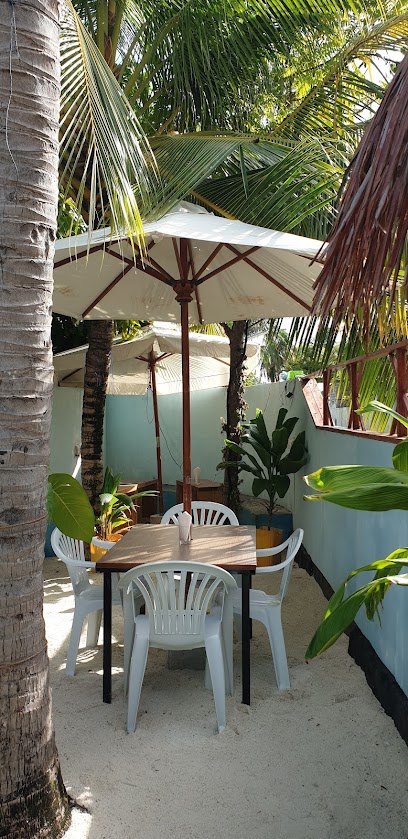
Santa Rosa Restaurant
Discover authentic Maldivian flavors at Santa Rosa Restaurant – where every meal is a celebration of culinary excellence.
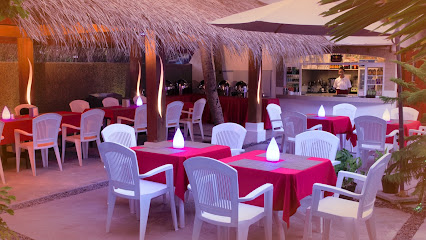
Thesandbar
Discover culinary delights at Thesandbar in Thulusdhoo—where fresh local ingredients meet exquisite flavors.
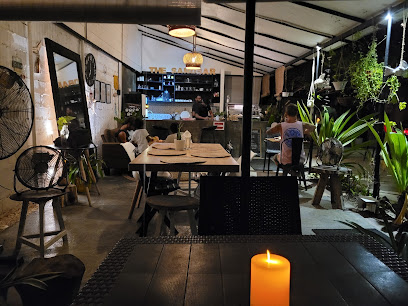
Aqua Beans
Discover Aqua Beans: Thulusdhoo's vibrant family-friendly café serving delightful local dishes and refreshing beverages amidst tropical charm.
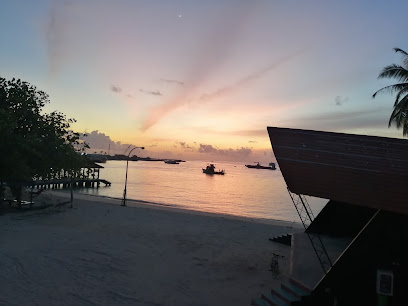
Silk Restaurant
Experience authentic Maldivian cuisine at Silk Restaurant in Thulusdhoo - where flavor meets hospitality amidst stunning island scenery.
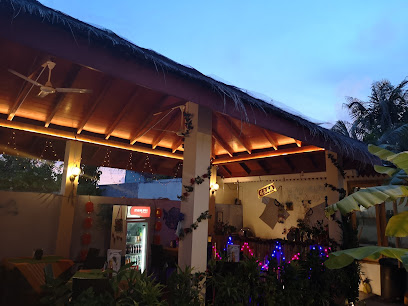
RG Restaurant
Discover authentic Maldivian cuisine at RG Restaurant in Thulusdhoo – where flavors meet hospitality.
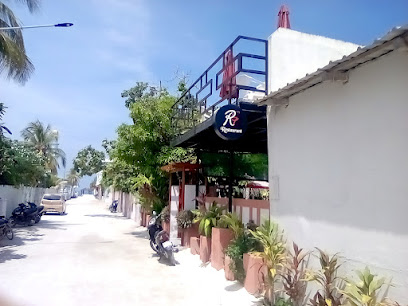
Batuta Maldives Beach Restaurant
Experience exceptional dining at Batuta Maldives Beach Restaurant with BBQ delights and refreshing drinks in beautiful Thulusdhoo.
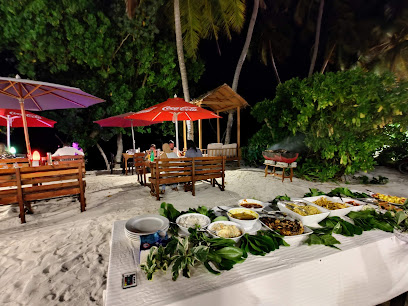
HIYALA - Cafe' & Bistro
Discover the flavors of Thulusdhoo at HIYALA - Cafe' & Bistro, where local ingredients meet international cuisine in a vibrant setting.
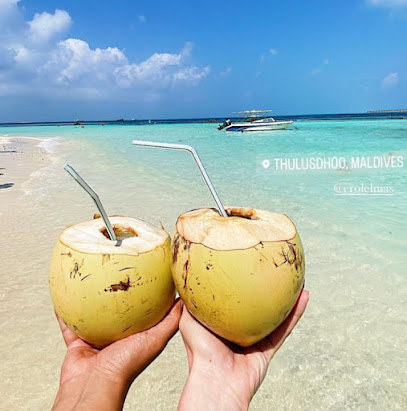
Aveli Restaurant
Experience exquisite Maldivian cuisine at Aveli Restaurant in Thulusdhoo - where flavor meets hospitality in paradise.
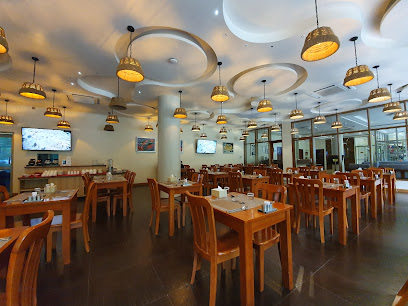
Fusion by Canopus
Experience authentic Italian cuisine at Fusion by Canopus in Thulusdhoo - where exquisite flavors meet tropical charm.
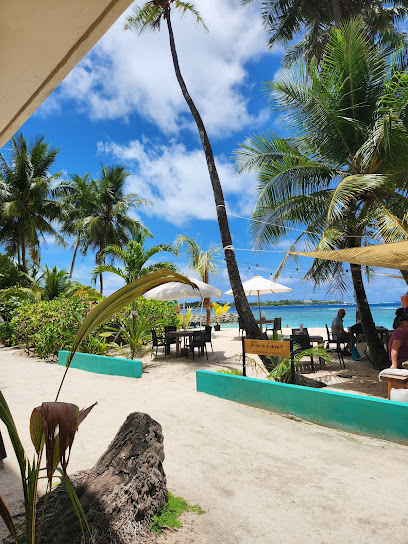
Ginger local cusine n seafood bistro
Experience authentic Maldivian dishes and fresh seafood at Ginger Local Cuisine & Seafood Bistro in beautiful Thulusdhoo.
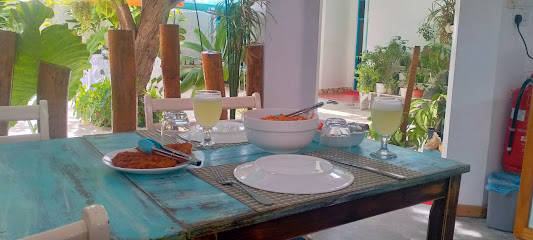
Mar-Umi
Experience authentic Japanese cuisine at Mar-Umi in Thulusdhoo – where tradition meets flavor amidst stunning island scenery.
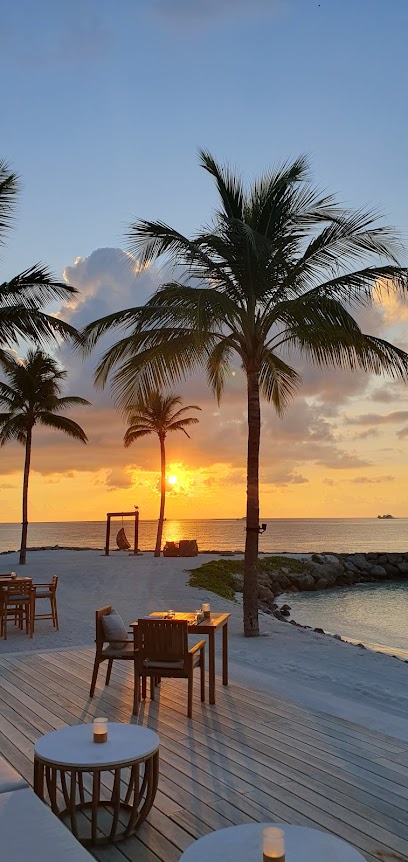
The Restaurant - Fire
Experience exquisite steaks at The Restaurant - Fire in Thulusdhoo; where quality meets local charm in an unforgettable dining atmosphere.
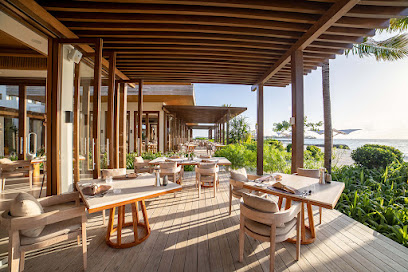
Markets, malls and hidden boutiques
Randhaa Surf Shop
Experience the ultimate surf adventure at Randhaa Surf Shop in Thulusdhoo, Maldives—where waves meet community and expertise.
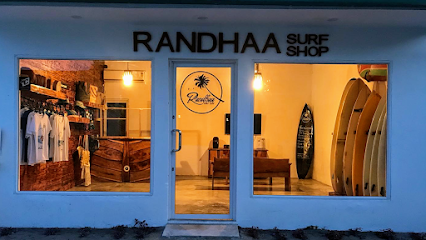
Le Rosa Thulusdhoo
Experience the tropical flavors of the Maldives at Le Rosa Thulusdhoo, your go-to ice cream shop for unique and refreshing treats.
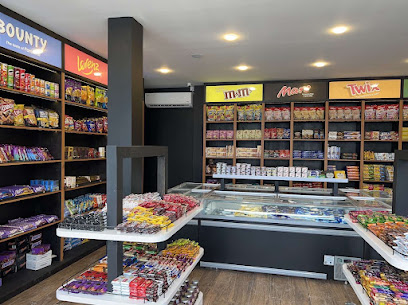
Sandy Toes
Discover the charm of Maldivian craftsmanship at Sandy Toes, the boutique that offers unique souvenirs and local treasures in Thulusdhoo.
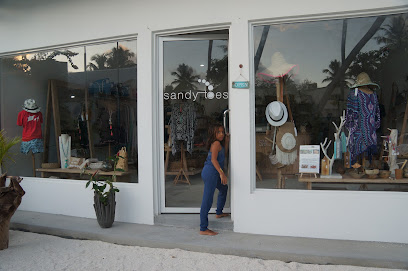
Six A
Explore local flavors and essentials at Six A, Thulusdhoo's charming grocery store for travelers seeking a taste of the Maldives.
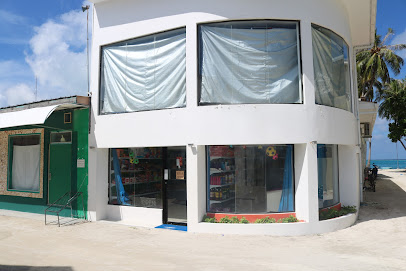
Lunar Fihaara
Explore Lunar Fihaara in Thulusdhoo, Maldives – a shopping haven with local charm, international brands, and delightful dining options.
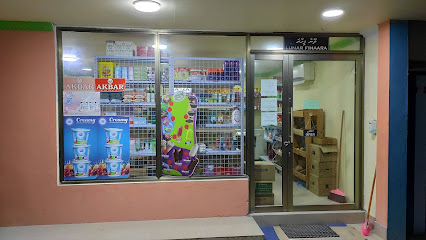
SHM Trade
Explore SHM Trade in Thulusdhoo for an unforgettable shopping experience, offering local products and essentials in the Maldives.
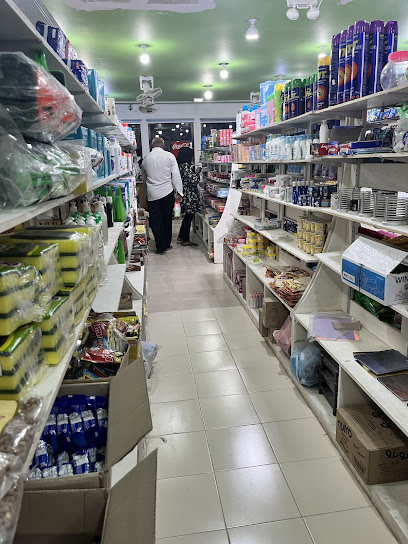
Black Shop
Explore the Black Shop in Thulusdhoo for a delightful grocery experience, offering local goods and essentials in a welcoming atmosphere.
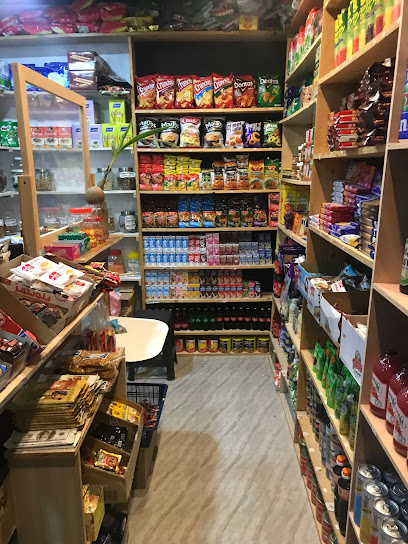
Randhaa Break
Experience the thrill of surfing at Randhaa Break, your go-to surf shop in Thulusdhoo, Maldives, offering premium gear and local expertise.
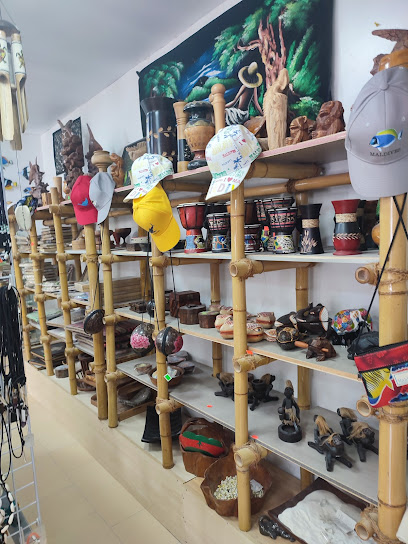
Pick mart
Discover local flavors and essentials at Pick Mart, your friendly grocery store in Thulusdhoo, Maldives.
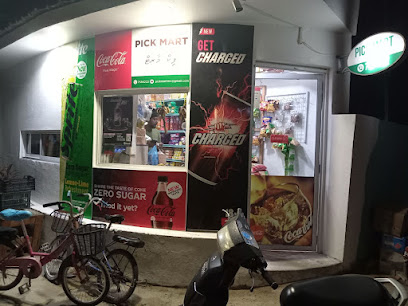
SUN SAND SEA
Explore the charm of Sun Sand Sea in Thulusdhoo, where unique Maldivian gifts and local craftsmanship await your discovery.
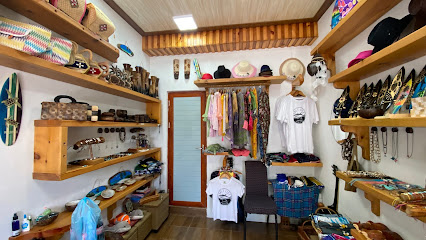
M.I.N Shop
Explore the vibrant offerings of M.I.N Shop in Thulusdhoo, your go-to grocery store for local essentials and unique Maldivian products.
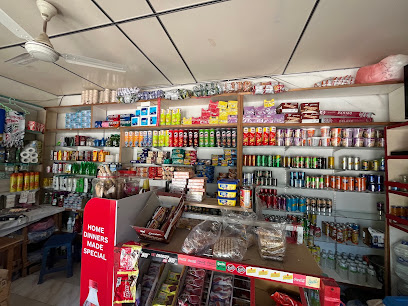
STO K. Thulusdhoo Pharmacy
Explore Thulusdhoo Island with peace of mind at STO K. Thulusdhoo Pharmacy, your trusted source for medical supplies in the Maldives.
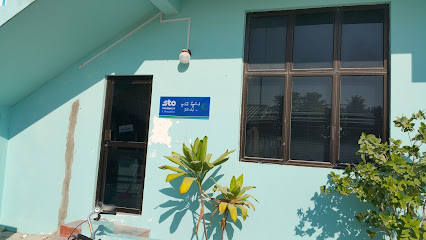
Surf Shed Surf Shop
Discover the ultimate surfing experience at Surf Shed Surf Shop in Thulusdhoo, where the waves meet expert advice and top-notch gear.

Hajja's Kitchen
Discover the delightful flavors of Thulusdhoo at Hajja's Kitchen, a cozy bakery offering authentic Maldivian pastries and baked goods.
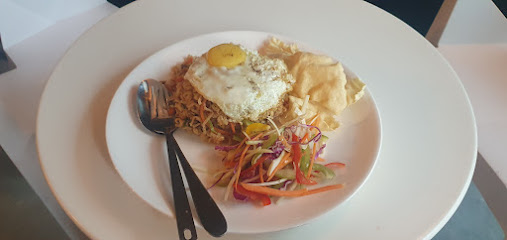
White coral souvenir
Discover the spirit of surfing at White Coral Souvenir in Thulusdhoo, your ultimate destination for surf gear and local crafts in the Maldives.
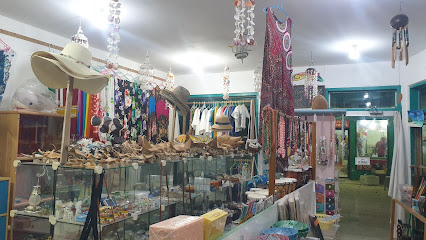
Essential bars & hidden hideouts
Indulge Thulusdhoo
Experience the best of Western cuisine in the idyllic setting of Thulusdhoo, where flavor meets the Maldivian charm.
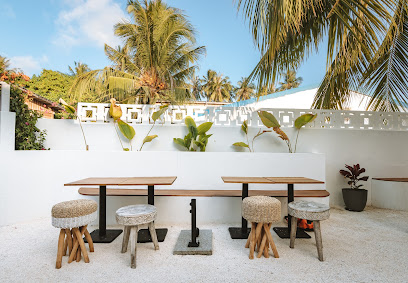
Byyoni
Discover the vibrant flavors of the Maldives at Byyoni, Thulusdhoo's premier restaurant where culinary creativity meets local tradition.
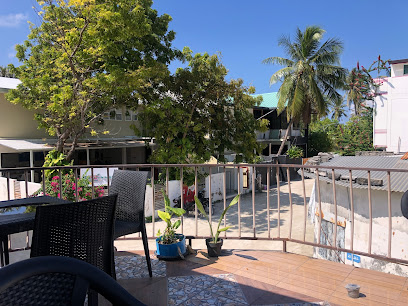
Bandaha Cafe
Discover the authentic flavors of Asia at Bandaha Cafe in Thulusdhoo, where every dish tells a story of local culinary traditions.
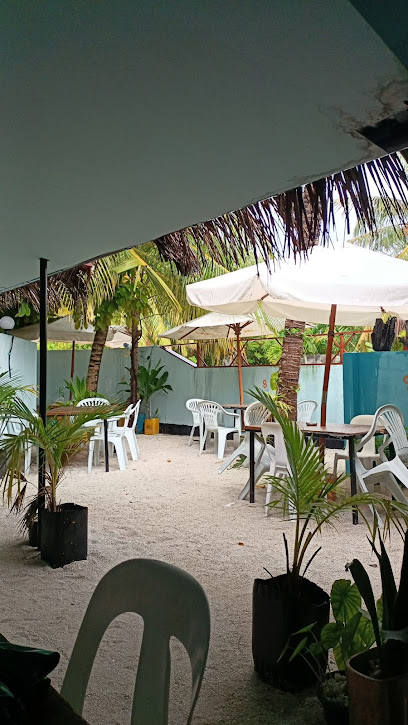
Santa Rosa Restaurant
Experience the authentic flavors of the Maldives at Santa Rosa Restaurant, where every dish tells a story of tradition and taste.
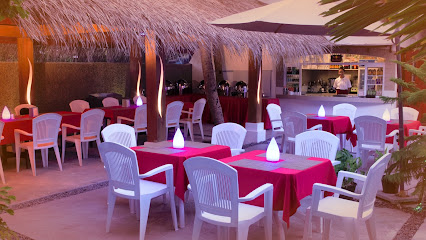
Thesandbar
Experience the flavors of the Maldives at Thesandbar, a top-rated restaurant in Thulusdhoo offering local and international cuisine in a stunning setting.
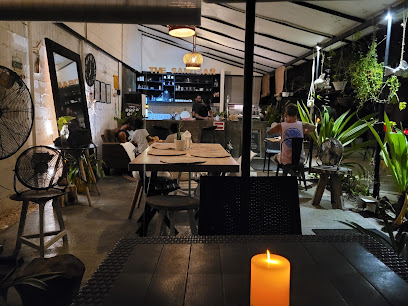
Aqua Beans
Discover Aqua Beans in Thulusdhoo: A family-friendly café offering delicious food and a vibrant atmosphere for a memorable dining experience.
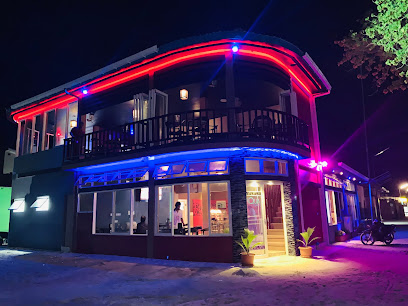
Silk Restaurant
Discover the flavors of the Maldives at Silk Restaurant in Thulusdhoo, where exquisite cuisine meets breathtaking views.
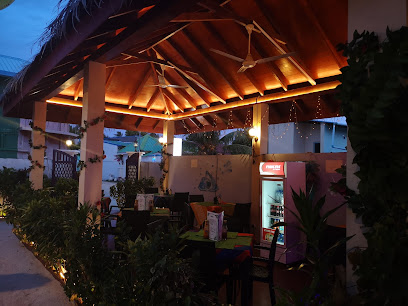
Batuta Maldives Beach Restaurant
Discover the flavors of the Maldives at Batuta Beach Restaurant, where delightful dishes meet breathtaking views in a tropical paradise.
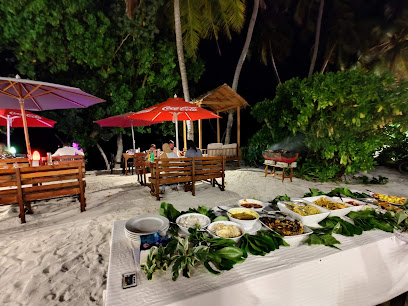
HIYALA - Cafe' & Bistro
Experience the essence of Thulusdhoo at HIYALA - Cafe' & Bistro, where local flavors meet cozy ambiance in a delightful culinary journey.
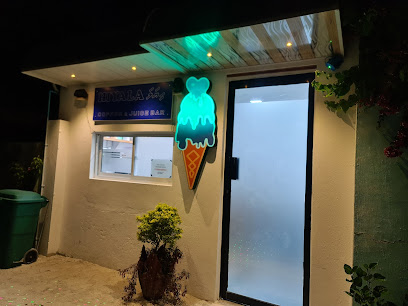
Zen Patio Thulusdhoo
Discover a culinary gem in Thulusdhoo, Maldives, where exquisite flavors meet a serene dining atmosphere at Zen Patio.
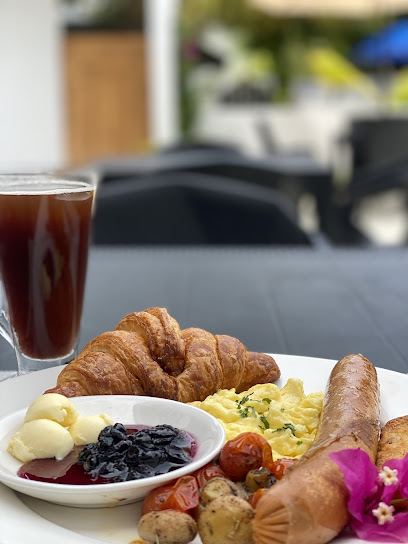
Aveli Restaurant
Experience the flavors of the Maldives at Aveli Restaurant, a culinary haven in Thulusdhoo, offering fresh seafood and delightful local dishes.
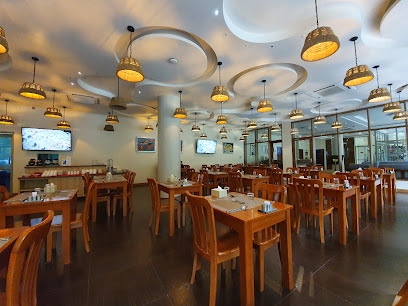
Fusion by Canopus
Discover the authentic taste of Italy at Fusion by Canopus, where exquisite cuisine meets the stunning surroundings of Thulusdhoo.
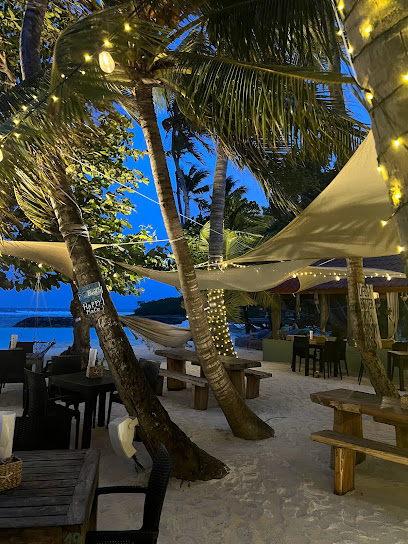
Coco bar Excursion thulusdhoo
Experience the thrill of water sports at Coco Bar Excursion in Thulusdhoo, Maldives - the ultimate destination for adventure seekers.
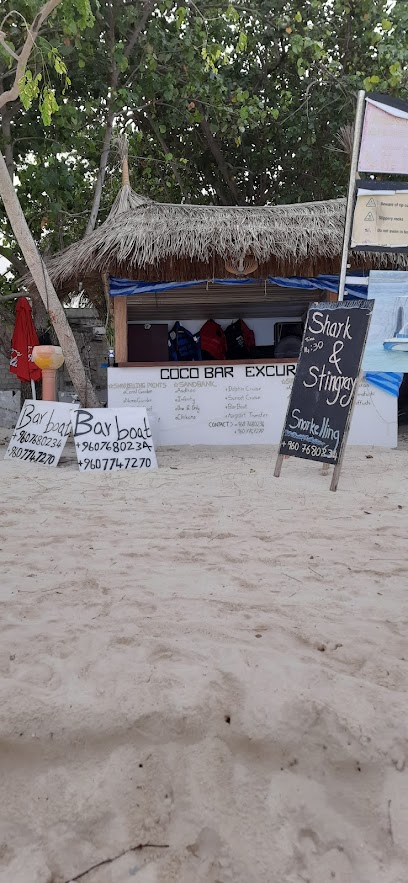
Clamshell
Discover the flavors of the Maldives at Clamshell, a top-rated restaurant in Thulusdhoo offering fresh seafood and a vibrant dining experience.
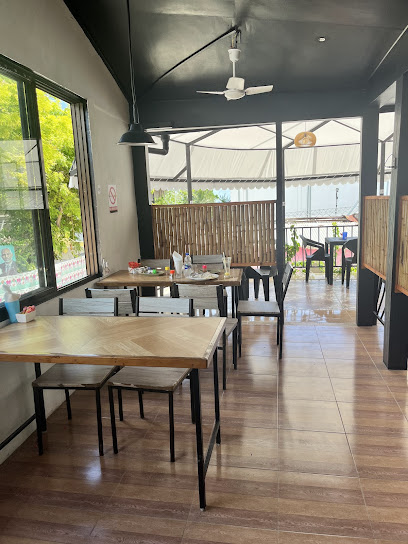
Local Phrases about Thulusdhoo Island
-
- Helloކުރިވަރު
[Kurivaaru] - Goodbyeކަށިމި
[Kashimi] - Yesއާ
[Ae] - Noނު
[Nu] - Please/You're welcomeކުރިވަރު
[Kurivaaru] - Thank youޝޯކުރޮށް
[Shukuriya] - Excuse me/Sorryކަބުކައް
[Kabukae] - How are you?ކަބުކައް
[Kihineh?] - Fine. And you?ލިކިން. ކަބުކައް?
[Lekin. Kihineh?] - Do you speak English?އެކަންބެވޭ ބައިނުކޮށް?
[Ekanbeyineh Barenge?] - I don't understandޝުކަބޭބައް
[Maakibae]
- Helloކުރިވަރު
-
- I'd like to see the menu, pleaseކުރިވަރު
[Kurivaaru] - I don't eat meatކުރިވަރު
[Kurivaaru] - Cheers!ކަބުކައް
[Kabukae] - I would like to pay, pleaseކުރިވަރު
[Kurivaaru]
- I'd like to see the menu, pleaseކުރިވަރު
-
- Help!އުޝަބޭ
[Ufaabe] - Go away!ކުނައޯ
[Kunay] - Call the Police!ކުރިވަރު
[Kurivaaru] - Call a doctor!ކުރިވަރު
[Kurivaaru] - I'm lostޝުކަބޭބައް
[Maakibae] - I'm illޝުކަބޭބައް
[Maakibae]
- Help!އުޝަބޭ
-
- I'd like to buy...ކުރިވަރު
[Kurivaaru] - I'm just lookingކުރިވަރު
[Kurivaaru] - How much is it?ކުރިވަރު
[Kurivaaru] - That's too expensiveކުރިވަރު
[Kurivaaru] - Can you lower the price?ކުރިވަރު
[Kurivaaru]
- I'd like to buy...ކުރިވަރު
-
- What time is it?ކަބުކައް
[Kihineh?] - It's one o'clockއިތަރު ދަށަން
[Ekanu dhany] - Half past (10)ޓަލް ޕަސްޓަށަން (10)
[Dhula pachadany (10)] - Morningއަންޑުލް
[Andhulu] - Afternoonއަރަވުލް
[Aravulu] - Eveningމަށިލް
[Mashilu] - Yesterdayއެބަތަކު
[Ebadaku] - Todayއެވެބު
[Evaabu] - Tomorrowއެއަމަތު
[Eamadu] - 1އެފަނު
[Efanu] - 2ދަކަތު
[Dhakadu] - 3ތަދު
[Vadh] - 4ކަޒު
[Kadhu] - 5ފާޅު
[Faah] - 6މައި
[Mai] - 7ސެއި
[Sei] - 8ދުބައި
[Dhubai] - 9ކަސައި
[Kagai] - 10ސާނު
[Saanu]
- What time is it?ކަބުކައް
-
- Where's a/the...?ކުރިވަރު
[Kurivaaru] - What's the address?ކުރިވަރު
[Kurivaaru] - Can you show me (on the map)?ކުރިވަރު
[Kurivaaru] - When's the next (bus)?ކުރިވަރު
[Kurivaaru] - A ticket (to ....)ކުރިވަރު
[Kurivaaru]
- Where's a/the...?ކުރިވަރު
History of Thulusdhoo Island
-
Thulusdhoo Island's history dates back to ancient times when the Maldives was primarily inhabited by Dravidian people from the Indian subcontinent. The island was an important part of the early settlement patterns in the Maldives, which were influenced by traders and seafarers from neighboring regions. Archaeological evidence suggests that Thulusdhoo, like many other islands in the Maldives, was settled as early as 1500 BCE.
-
Before the Maldives converted to Islam in 1153 CE, the islands, including Thulusdhoo, were predominantly Buddhist. The island likely housed Buddhist stupas and monasteries, remnants of which have been found scattered across the Maldives. The conversion to Islam was led by Abu al-Barakat, a North African Islamic scholar who arrived in the Maldives and played a significant role in the island's religious transformation. Thulusdhoo, like other islands, embraced the new faith, which shaped its cultural and social norms.
-
During the 16th and 17th centuries, the Maldives, including Thulusdhoo, experienced European colonial interest, particularly from the Portuguese and the Dutch. The Portuguese briefly controlled the Maldives from 1558 to 1573, a period marked by local resistance and eventual expulsion of the colonizers. Thulusdhoo, as part of the archipelago, was indirectly affected by these events, which left a lasting impact on the island's defensive strategies and political alliances.
-
In the late 19th century, the Maldives became a British Protectorate, which lasted until 1965. Thulusdhoo Island, like the rest of the Maldives, experienced changes in administrative and socio-economic structures due to British influence. The local governance systems were refined, and the islanders benefited from improved infrastructure and trade opportunities. The British period also saw the introduction of modern education and healthcare systems, which contributed to the island's development.
-
One of the most significant modern events in Thulusdhoo's history is the establishment of the Maldives' first Coca-Cola factory in 1989. This factory is unique because it produces Coca-Cola using desalinated water, a testament to the innovative use of local resources. The factory has become an integral part of Thulusdhoo's economy, providing employment opportunities and contributing to the island's economic growth. It also highlights the island's ability to adapt and thrive in a globalized world.
-
In recent decades, Thulusdhoo has become a renowned destination for surfers and tourists from around the world. The island is famously known for its world-class surf break, Cokes, named after the nearby Coca-Cola factory. This surfing spot has attracted a growing number of international visitors, leading to the development of guesthouses, resorts, and other tourism-related businesses. The tourism boom has significantly transformed the island's economy and lifestyle, making it a vibrant hub for cultural exchange and economic activity.
Thulusdhoo Island Essentials
-
Thulusdhoo Island is located in the Kaafu Atoll of the Maldives. The nearest international airport is Velana International Airport in Malé. From Malé, you can take a speedboat or a local ferry to Thulusdhoo. The speedboat takes approximately 30 minutes, while the local ferry takes around 90 minutes. Speedboats are more expensive but offer a faster and more comfortable ride.
-
Thulusdhoo Island is small enough to explore on foot. Walking is the primary mode of transportation for most visitors. Bicycles are also available for rent, providing a fun and efficient way to get around. For longer trips or if you're carrying heavy luggage, local taxis and motorbikes can be hired.
-
The official currency of the Maldives is the Maldivian Rufiyaa (MVR). However, U.S. dollars are widely accepted, especially in tourist areas. Credit cards are accepted in most hotels, restaurants, and shops, but it is advisable to carry some cash for smaller establishments and local markets. ATMs are available, but it's wise to withdraw sufficient cash before traveling to Thulusdhoo.
-
Thulusdhoo Island is generally a safe destination for tourists. There are no specific high-crime areas targeting tourists, but it is always advisable to take standard precautions. Keep an eye on your belongings in crowded places and avoid walking alone at night in unfamiliar areas. Lock your accommodation when you go out and secure your valuables.
-
In case of emergency, dial 119 for police assistance and 102 for medical emergencies. The island has a basic health clinic, but for serious medical issues, you may need to be transferred to a hospital in Malé. It is highly recommended to have travel insurance that covers medical emergencies and evacuation. Pharmacies are available for minor health issues and over-the-counter medications.
-
Fashion: Do dress modestly, especially outside of resorts. Swimwear is acceptable at the beach, but cover up when walking around the island. Avoid wearing revealing clothing. Religion: Do respect local customs and traditions, as the Maldives is a Muslim country. Avoid public displays of affection and be mindful of prayer times. Public Transport: Do be respectful and give up your seat to elderly passengers if using local ferries. Don't eat or drink on public transport. Greetings: Do greet people with a smile and a slight nod. Handshakes are common, but always use your right hand. Eating & Drinking: Do try local Maldivian cuisine and accept food offerings graciously. Don't refuse hospitality, as it is considered impolite.
-
To experience Thulusdhoo Island like a local, visit the local markets to buy fresh fish and produce. Engage with the locals; they are friendly and often willing to share stories about their island life. Don't miss the opportunity to try local delicacies like Garudhiya (a fish soup) and Hedhikaa (short eats). For a unique experience, join a local fishing trip or a surfing session at the famous Cokes surf break.
Nearby Cities to Thulusdhoo Island
-
Things To Do in Huraa
-
Things To Do in Hulhumalé
-
Things To Do in Malé
-
Things To Do in Guraidhoo
-
Things To Do in Thoddoo
-
Things To Do in Fulidhoo
-
Things To Do in Ukulhas
-
Things To Do in Dhigurah
-
Things To Do in Maafushi
-
Things To Do in Trivandrum
-
Things To Do in Kanyakumari
-
Things To Do in Kochi
-
Things To Do in Bentota
-
Things To Do in Hikkaduwa
-
Things To Do in Colombo





